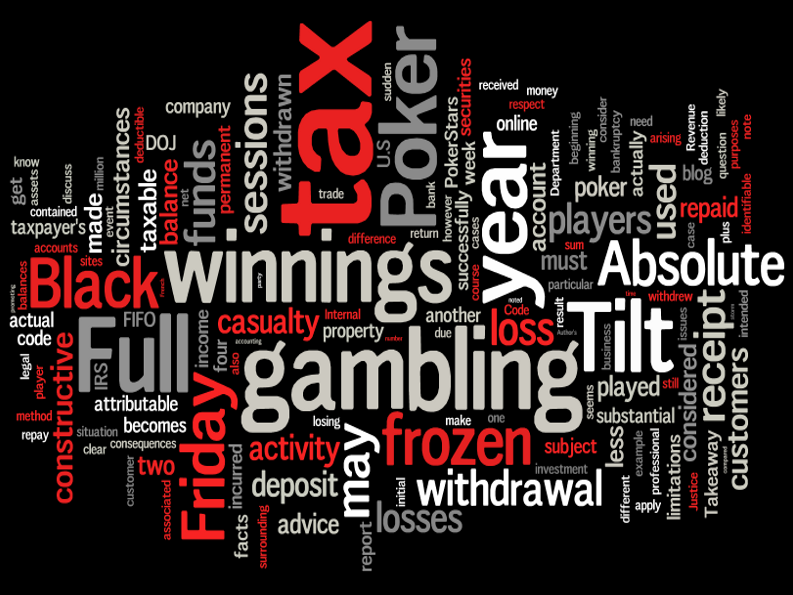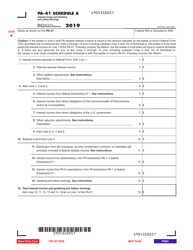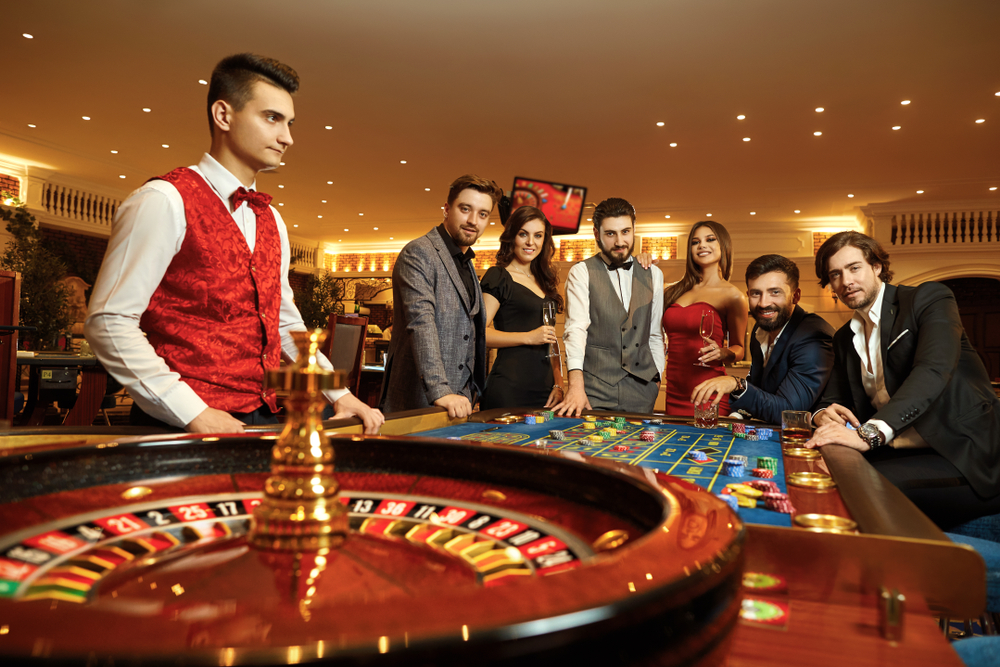Pennsylvania Tax On Gambling Winnings
- Massachusetts Tax On Gambling Winnings
- Pennsylvania Tax On Gambling Winnings
- Pa Income Tax Gambling Winnings
8) Gambling & Lottery Winnings – Except Pennsylvania state lottery prizes. Qualifying and substantiated gambling losses may offset to “net” taxable gambling winnings. Types of income sources taxable on the federal level and not in PA are. Required Reporting of Gambling Winnings. Casinos are required to report gambling winnings if they exceed a certain limit ($1,200 of slot machine winnings for example). Gambling winnings get reported on the first page of your tax return on line 21. Note that you cannot subtract gambling losses from your winnings on your Maryland tax return.Answers are correct to the best of my ability but do not constitute tax or legal advice. 0. According to Pennsylvania law, the 36 percent tax is assessed on 'gross sports gaming revenue,' which is defined as the amount of money placed in bets minus the cash that is paid back to winners. If a casino's hold is 5 percent, it retains $5 for every $100 bet. Clude all gambling and lottery winnings from Pennsylvania sources except noncash winnings from the PennsylvaniaCOLUMNS Lottery. Refer to the PA Personal Income Tax Guide – Gam-bling and Lottery Winnings section for additional information. Property, trips, services, etc. Won in any contest, game show.
State of Play
Massachusetts Tax On Gambling Winnings
Explore the national and state-by-state impact of the casino gaming industry, as well as key regulatory and statutory requirements in each state.
Number of Casinos 12
Economic Impact $6.34 Billion
Jobs Supported 33,171
Tax Impact $2.48 Billion
Gross Gaming Revenue $3.38 Billion (2019)
Size of circle indicates number of casinos in the area.
All location data is as of Dec. 31, 2019.

Pennsylvania Gaming Control Board
303 Walnut Street, 2nd Floor
Strawberry Square
Harrisburg, PA 17106
717-703- 8300
Website
Section 1201 of title 4 of the Pennsylvania Consolidated Statutes establishes the Pennsylvania Gaming and Control Board (PGCB). The board is tasked with supervising casinos as well as slot machines at racetracks, online casino gaming and sports betting.
Pennsylvania Tax On Gambling Winnings
AVAILABLE GAMING LICENSES
Category One – Racetrack Facilities License
Category One – Racetrack Facilities, Addition of Table Games License
Category Two – Standalone Casino License
Category Two – Standalone Casino, Addition of Table Games License
Category Three – Resort-style Casino License
Category Three – Resort-style Casino, Addition of Table Games License
Category Four – Ancillary Casino License
Category Four – Ancillary Casino, Addition of Tables Games License
Interactive Gaming Certificate
Interactive Gaming Operator License
Manufacturers License
GAMING TAX RATE
Pennsylvania imposes a 34 percent tax on the gross revenues collected from slot machines. On top of this, the state has placed an additional tax of up to 12 percent for the Pennsylvania Race Horse Improvement Assessment, a 5 percent tax that will go to the Pennsylvania Gaming and Economic Development and Tourism Fund, and, finally, a 4 percent tax or $10m, whichever is greater, that will go to the host community. In total, up to 55 percent of revenues generated from slot machines will go to the government in the form of taxes.
Effective August 2016, operators will pay taxes equal to 16 percent of daily gross table game revenues, up from 14 percent. The additional two percent tax is set to expire in 2019. In addition, operators must pay 34 percent of its daily gross revenues from each table game played on a fully automated electronic table game at its licensed facility.
TAX PROMOTIONAL CREDITS
None
WITHHOLDINGS ON WINNINGS
Gambling winnings are taxable income and are taxed at 3.07 percent.
| TAX ALLOCATION |
| The proceeds of the tax on slot machine revenues from Category 1, 2, and 3 casinos is distributed as follows: |
|
| The effective tax rate for Category 4 casinos is 50 percent and is distributed as follows: |
|
STATUTORY FUNDING REQUIREMENT
The greater of $2 million or .002 multiplied by the total gross terminal revenue of all active and operating licensed gaming entities. Category Four gross terminal revenue is excluded.
SELF-EXCLUSION
Yes
Pa Income Tax Gambling Winnings
COMPLIMENTARY ALCOHOLIC DRINKS
Yes

ADVERTISING RESTRICTIONS
Must contain help for problem gambling message
ON-PREMISE DISPLAY REQUIREMENT
Preapproved by Office of Compulsive and Problem Gambling
AGE RESTRICTIONS
21+ years of age on floor
TESTING REQUIREMENTS
Conducted through the Bureau of Gaming Laboratory Operations, division within the PGCB.
ANTI-MONEY LAUNDERING REQUIREMENTS
Federal compliance requirements and PA-specific “suspicious transactions” report requirements for transactions over $5,000.
SHIPPING REQUIREMENTS
Notification of intention to ship into, within or out of state to Bureau of Gaming Laboratory Operations and Bureau of Casino Compliance.
RESTRICTIONS ON POLITICAL CONTRIBUTIONS
In September 2018, Pennsylvania’s blanket prohibition on political contributions from those involved in the gaming industry was struck down in federal court. The opinion declared the law overly broad and unconstitutional.
CREDIT OFFERED TO PATRONS
Yes
AUTHORIZED OPERATORS
Commercial casinos, racinos & online operators
MOBILE/ONLINE
Allowed statewide
TAX RATE
36 percent
INITIAL LICENSING FEE
$10 million
LICENSE RENEWAL FEE
$250,000, payable every 5 years
AMATEUR RESTRICTIONS
None

OFFICIAL DATA MANDATE
None
INTEGRITY FEE
None
PHILADELPHIA (CBS) — The advent of casino gambling in Pennsylvania was supposed to help homeowners in the form of lower property tax bills. Years later, however, some homeowners say they’ve seen little tax reduction as the casino revenue is actually going elsewhere — specifically, horse racing.
Pennsylvania lawmakers legalized casinos more than a decade ago, making a few promises along the way. First, legislators said slot machines would generate so much in tax revenue, people would see an average savings of $300 a year off their property tax bill.
But that promise has fallen short. This year, the average savings is just $182, according to the state Education Department.
It was even less for property owners in the Great Valley School District in Chester County: $126. In East Penn, Lehigh County, the average savings was $177.
In Cheltenham, Montgomery County, where Larry Angert lives, his property tax savings amounted to $55.
“It’s a joke! It’s a typical politician’s promise and it’s a joke,” he said.
But there was another promise Pennsylvania lawmakers made. They said taxes from casinos would help prop up horse racing. That was a promise kept.
CBS3 discovered $174 million in tax dollars, generated by the state’s slot machines, went to horse races. That cash is used to fund nearly all of the races’ prize money, called purses.
“The purses here are very attractive,” said Paul Trapani of Maryland.
Trapani won $35,000 at a recent race at Parx with his horse, Lord of Misrule. He says most of that will be spent out of state — either in Wilmington, Delaware, where the horse is trained, or Maryland, where he lives.
A 2017 state audit shows almost half of all horse race winnings in Pennsylvania — some $73.6 million — flowed to non-residents.
While out of state horse owners are attracted to Pennsylvania’s tracks, the tax money has not been not enough to attract big crowds.
A benchmark report shows a drop in horse racing attendance statewide for the last three years.
“I’m just frustrated with the lack of results,” said Republican state Rep. Todd Stephens of Montgomery County.

Stephens would rather reform the program or use the $174 million that went to purses last year to help plug the state’s deficit. He calls the money that goes to horse racing a hand out.
“There’s no question, this is corporate welfare,” he said.
“It employs 20,000 people,” countered Pete Peterson of the Pennsylvania Equine Coalition. “It helps reserve 100,000 acres of open space, so it’s a very good return on investment in my opinion.”
Peterson also believes the horse racing industry may soon be on the rebound, but he says it takes time.

“We have seen a very significant impact,” Peterson said. “We’re proud of the jobs it’s created throughout the Commonwealth.”